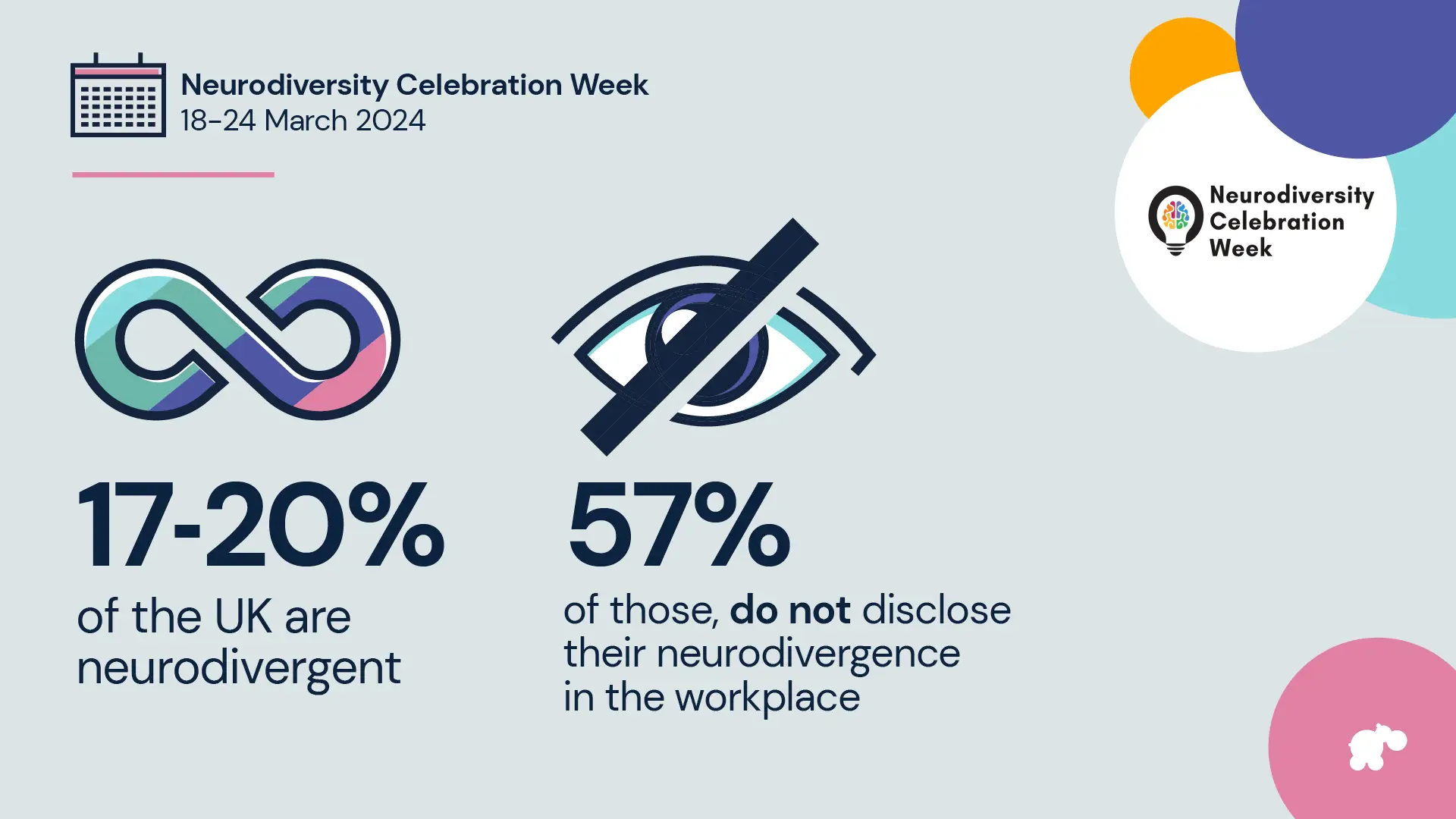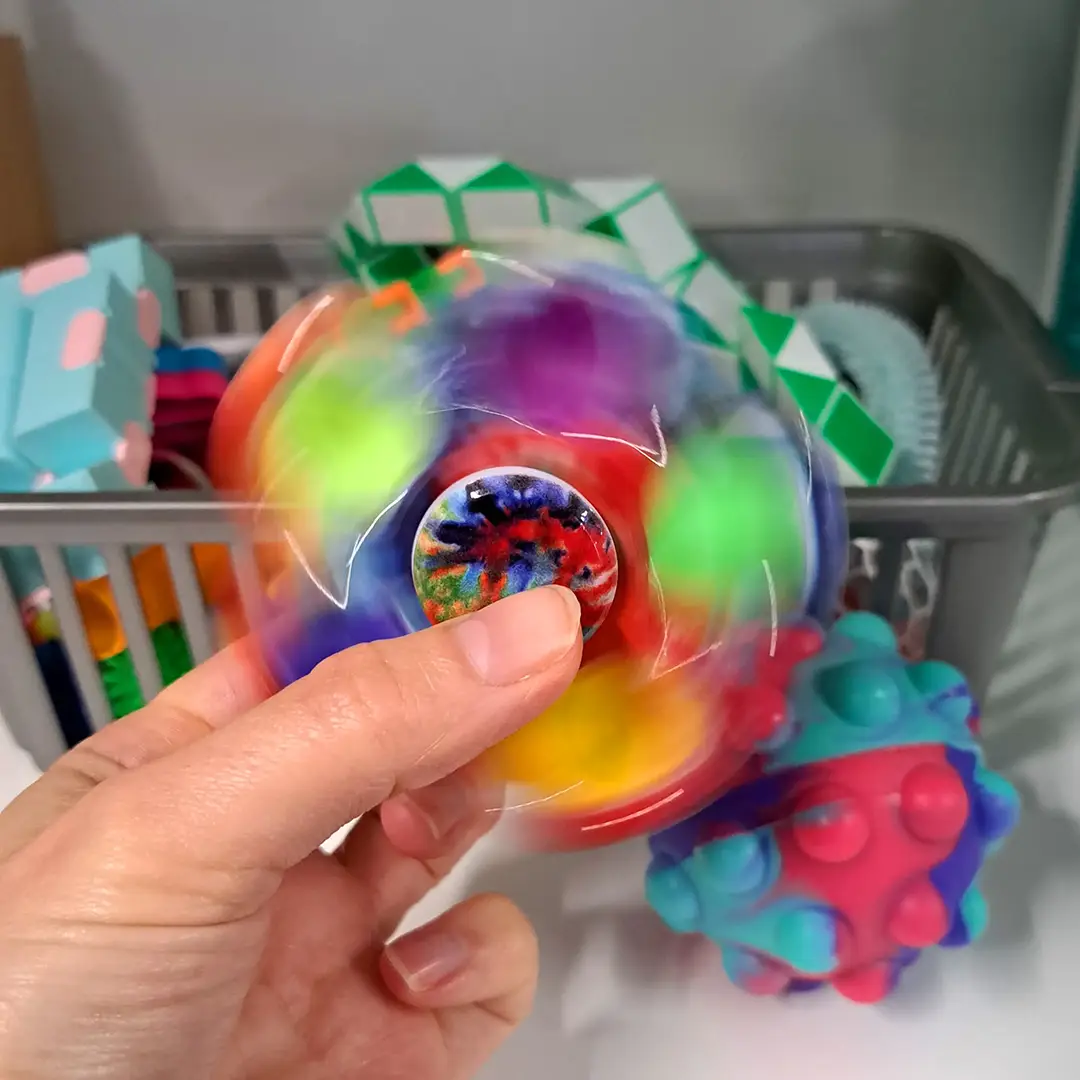A modern, progressive workplace should be a kaleidoscope. At Hippo, we seek to recognise, celebrate and promote diversity, inclusion and belonging in all its forms. During the week of 18-24 March 2024 we are marking Neurodivity Celebration Week as part of that commitment, undertaking a series of educational events and awareness building activities.
As we start the week, it is worth reflecting on why we celebrate this week. For that, we turn to Siena Castellon, the founder of the campaign
“I founded Neurodiversity Celebration Week in 2018 because I wanted to change the way learning differences are perceived. As a teenager who is autistic and has ADHD, dyslexia, and dyspraxia, my experience has been that people often focus on the challenges of neurological diversity. I wanted to change the narrative and create a balanced view which focuses equally on our talents and strengths.”
Siena Castellon, Founder of Neurodivity Celebration Week
Events through Neurodiversity Celebration Week
To kick things off, we’re looking ahead to a fantastic schedule of talks and webinars from other organisations to keep note of in our diaries. We wanted to share links to these events with the communities we are part of and also hear from our network about what you are planning on attending this Neurodiversity Celebration Week:
- Neurodiversity Celebration Week are hosting a vast array of online talks and panel discussions available throughout the week.
- ADHD Life Solutions: The Rollercoaster of Being a Woman with ADHD: ADHD Life Solutions Webinar.
- A wide selection of online seminars and events can be also be found online.
- Seed Talks also has various thought provoking discussions available beyond Neurodiversity Celebration Week.
Lunch and Learn with Marc Crawley of Diversita
In preparation for Neurodiversity Celebration Week, we had the privilege of hosting Marc Crawley from Diversita for a hugely valuable lunch and learn awareness session. Marc’s presentation helped us to gain a deeper understanding of #neurodiversity and how we can better support neurodivergent Hippos and partners in the workplace.
To kick off this week, we wanted to share some of what we learned with our network.
Between 17-20% of the UK are neurodivergent, with 57% of individuals not having disclosed this to anyone at work. Conversely, companies on average believe that only 3% of their workforce is neurodivergent!

It’s crucial to address this huge gap in perception and build a pathway for inclusivity in the workplace. Neurodiverse workforces offer huge opportunities for employers, including different viewpoints, outlooks and skill sets throughout business functions and project teams.
Marc also shared more about the important topics of:
- Equality vs Equity – employers can work to create an inclusive platform where neurodivergent people are able to show the best versions of themselves – both in recruitment processes and in their workplace environment.
- Ableism – how a common ableist tendency that can affect neurodivergent people is for other people to “take over” tasks for individuals or re-explain what someone means – instead of embracing people’s differences.
- Masking – a survival tool for neurodivergent people in a predominantly neurotypical society which can often cause them to hide their neurodiversity leading to sensory discomfort, late diagnosis and mental health challenges.
- Phrasing and Language – we learnt about the terms neurodiverse, neurodivergent, and neurodiversity, and their correct usage – and how ‘identity first language’ and ‘person first language’ are different approaches that can be taken to referring to neurodiversity, depending on personal preferences.
Alongside these important concepts, Marc also provided a detailed overview of the neurodivergent groups of Autism, ADHD and Dyslexia, outlining the strengths, challenges and misconceptions surrounding each.
We want to thank Marc Crawley for sharing his expertise and guiding us through an incredibly valuable session.
Office fidget toys
A workplace where all the talents can feel comfortable to do their best work is one that will thrive.
This week, the Hippo team are distributing fidget toys to our offices for use in meetings and throughout the office. Fidget toys are a common tool many people use to help with stimulation regulation, reducing and managing anxiety and helping maintain focus and concentration, all things that many neurodivergent people can find particularly challenging.
We also hope that their use will promote visibility, reduce stigma and foster an understanding of the steps we can take to make our spaces and interactions as comfortable as possible for our entire team.

These items alone are not enough, but it is a part of that journey to improve our workplace for all, hold more open conversations and build an ever-increasingly progressive and inclusive company. If you have any experience in neurodiversity and have advice on how we can further improve our workplace, please get in touch. We appreciate the feedback.
Unlocking Neurodiversity: Harnessing Technology for an Inclusive Workplace
In the realm of workplace accommodations for neurodivergent colleagues, the integration of technology has presented a world of possibilities. We asked our Hippos what technology they use to support a comfortable, effective workplace.
We are aware that these recommendations alone don’t resolve the challenges an individual may be faced with, but coupled with other forms of support, they can be an empowering set of tools and offer a range of benefits to neurodivergent individuals.
Goblin Tools: A Neurodivergent’s Best Ally
It is worth highlighting a particularly interesting tool we learned about from our neurodivergent community: Goblin Tools. This free to use online software solution offers a spectrum of functionalities, each designed with neurodivergent needs in mind:
Magic ToDo: Crafting task lists with meticulous detail and step-by-step instructions, aiding in organisation and task management.
Formaliser: Adapting text to suit different communication styles, from formal to casual, accommodating diverse preferences in workplace interactions.
Estimator: Tackling the challenge of time management by providing accurate estimations for tasks, combating the phenomenon of time blindness.
Judge: Offering an objective assessment of tone in written communications, ensuring clarity and mitigating misunderstandings.
Chef: Generating recipes based on input ingredients, simplifying meal planning and promoting healthy eating habits.
Other software options:
Visual Organization Tools (e.g., Trello, Asana): Visual task management tools allow neurodivergent individuals to organise tasks, deadlines, and projects in a structured and visually intuitive manner, aiding in better comprehension and time management.
Text-to-Speech Software (e.g., NaturalReader, Read&Write): Text-to-speech software assists neurodivergent individuals in processing written information more efficiently by converting text into spoken words, enhancing comprehension and reducing cognitive load.
Mindfulness and Relaxation Apps (e.g., Headspace, Calm): These apps provide guided meditation sessions and relaxation techniques, helping neurodivergent colleagues manage stress and anxiety levels in busy work environments, promoting better mental well-being.
Customisable Communication Platforms (e.g., Slack, Microsoft Teams): Platforms that allow for customization of notifications, channels, and user interfaces enable neurodivergent individuals to tailor their communication experience, reducing information overload and facilitating smoother collaboration.
Time Management Tools (e.g., RescueTime, Toggl): Time tracking and productivity tools help neurodivergent individuals better manage their time, set goals, and monitor their workflow, promoting a structured approach to work tasks and deadlines.
Sensory-Friendly Interfaces (e.g., Windows Ease of Access features): Operating systems and software with built-in accessibility features, such as customizable colour schemes, font sizes, and simplified interfaces, accommodate diverse sensory needs and improve user experience for neurodivergent individuals.
Hardware tools
Workplace pods: Utilising designated work pods gives a safe, quiet space to do work which can be hugely important to those who are uncomfortable in loud open spaces.
Earplugs: Noise cancelling earplugs minimise distractions and foster productivity during focused tasks. Earphones offer a sanctuary, providing respite from overstimulation in noisy environments.
Movement-Friendly Setup: Incorporating ergonomic furniture like a spacious armchair to facilitate movement and fidgeting during extended work sessions.
Tracking Devices: Employing tracking devices like ’tiles’ to alleviate stress associated with misplaced belongings, enhancing overall efficiency and peace of mind.
reMarkable Tablet: Embracing the tactile experience of note-taking with a pen on electronic paper, fostering concentration and organisation in note management.
Incorporating processes into common technology
Personal Communication Manuals: Advocating for effective communication by sharing personalised manuals or passports present preferred communication styles and nuances without a need to repeat requirements or face anxiety of personally discussing working condition requirements.
Reminder Systems: Leveraging technology, such as reminders on smart devices, to prompt breaks and self-care routines, vital for maintaining well-being amidst hectic schedules.
Looking Ahead: Towards Inclusive Workplaces
As we journey towards creating truly inclusive workplaces, the fusion of technology and tailored accommodations should mark our progress. By embracing the diverse needs of neurodivergent individuals and harnessing the power of innovative solutions, we create a roadmap for a more equitable and enriching professional landscape for all.
The start of our journey
We recognise that we’re at the beginning of an exciting journey of championing neurodiversity and unlocking its full potential within the Hippo workplace. Keep an eye on this blog to join us on that path.
Please note: The words we use have been validated internally. We are aware that there are other ways of naming either conditions, or aspects of neurodiversity that might be preferred by some individuals or groups of individuals. However, if ever we fall short, please engage with us as part of our intent to improve.
